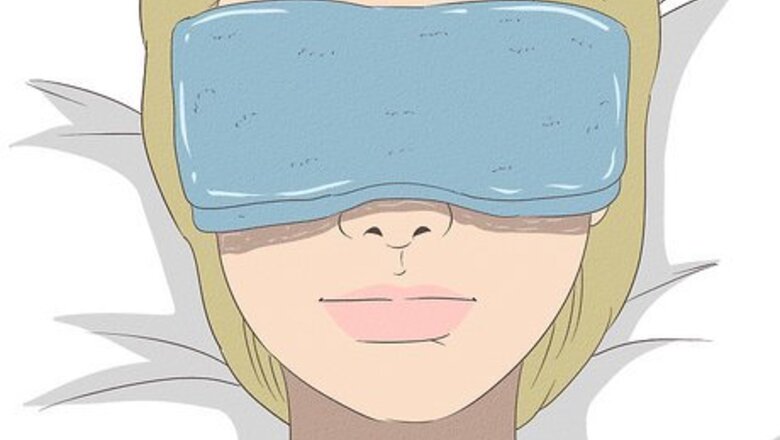
views
How to Get Rid of Puffy Eyes from Crying
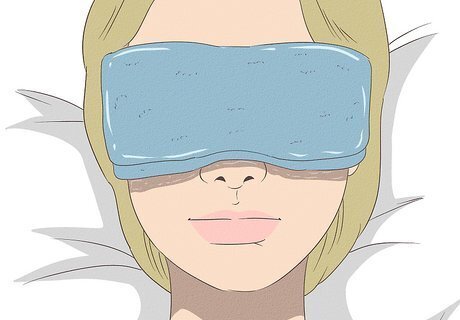
Apply a cold washcloth. Wet a soft, fluffy cloth with ice cold water. Wring it out, then fold the cloth and place it over your eyes for about ten minutes. The cold should constrict the blood vessels around your eyes, reducing the swelling. If you're in a rush or a public place, visit the bathroom for a quick refresh. Fold a paper towel twice to make a neat square, then wet it with cold water. Press it lightly against your eyelids for fifteen seconds each, then look upward and place the towel just beneath your lower lashes, pressing gently for another fifteen seconds on each eye. This quick refresher should help to slightly reduce the appearance of visible puffiness.
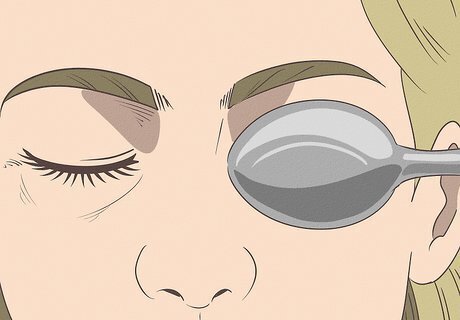
Use a cold compress. For a bit of a more intense option, apply a cold compress to your eyes for 5-10 minutes. This quickly reduces blood flow to the area, which helps soothe any puffiness, swelling, and inflammation you may be experiencing after crying. You can use anything cold that you have on hand, such as an ice pack, a bag of frozen peas or corn, or even refrigerated spoons.
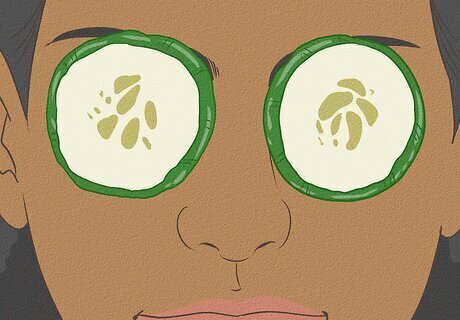
Apply chilled cucumber slices to closed eyes. Cold cucumber slices help reduce eye puffiness in the same way that cold washcloths and cold compresses do. They act as a vasoconstrictor, slowing blood flow to the area and therefore reducing puffiness. Place them over your eyes for about 5-10 minutes to feel these effects. Cucumbers also call to mind relaxing spa days, so take this time to truly relax and pamper yourself. Lay back, put on a soothing song, light a nice scented candle—whatever makes you feel at peace!
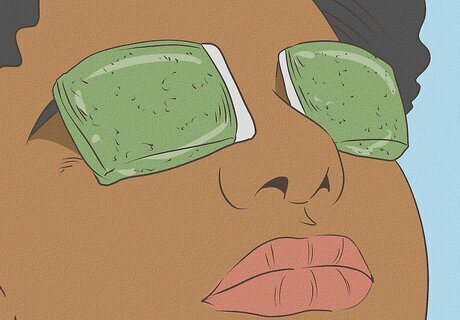
Apply tea bags to closed eyes. Chilled tea bags can also help soothe and reduce eye puffiness. Just soak two tea bags in cold water, then place them on your closed eyes for about 15 minutes. If the tea you’re using is caffeinated, this is also a plus! Caffeine is a vasoconstrictor (just like the cold temperature is), and it’s a common ingredient in eye creams that aim to reduce eye bags and puffiness.

Apply chilled eye cream or face cream. Refrigerate the cream for about ten minutes, then rub gently into the skin underneath your eyes. Be careful not to get the product too close to your eyes—just apply it to the surrounding area. The cool temperatures will soothe the puffiness and reduce inflammation. If the eye cream you’re using includes caffeine, you’ll likely see an even more dramatic result!
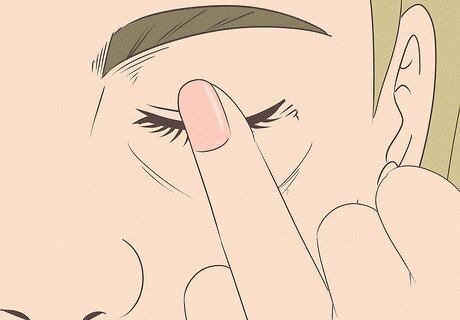
Gently massage or press under your eyes with your fingers. Using your fingers, lightly press on the puffy areas underneath your eyes. This can stimulate blood flow and help reduce puffiness in the area. To make this method even more effective, run your fingers under cold water first. The cold temperatures will be extra soothing.
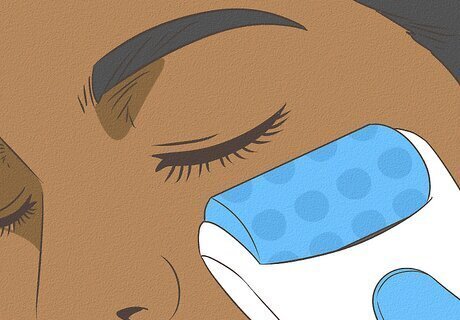
Use a facial roller tool. Eye-roller tools made out of metal, jade, or quartz can help improve circulation and promote lymphatic drainage, which can reduce the appearance of puffiness. You can also chill your tool before using it for extra effectiveness.
How to Get Rid of Eye Redness & Dryness from Crying
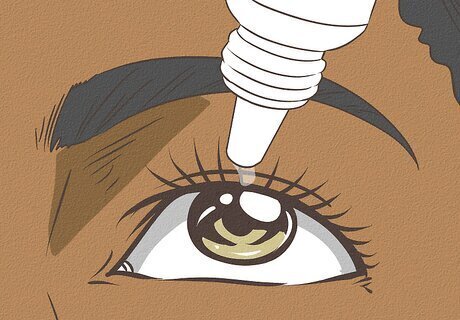
Use eye drops or artificial tears. Over-the-counter eye drops and artificial tears can provide some added lubrication, relieve irritation, and flush out allergens from your eyes. This can reduce the appearance of redness and soothe dryness.
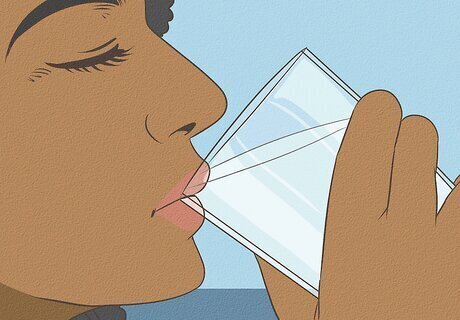
Increase your water intake. Drinking enough water helps your eyes stay moist and healthy. Try to drink at least 8-10 glasses of water per day. You can also eat foods with high water contents, like cucumbers and watermelon, to help you reach your hydration goals.
Using Makeup to Reduce the Appearance of Puffy, Red Eyes
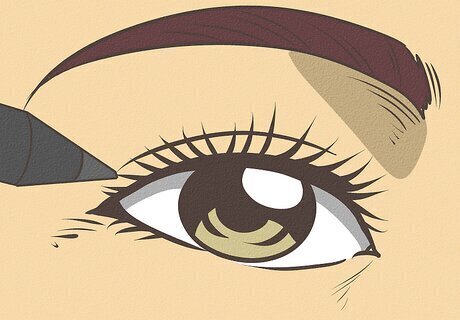
Apply eyeliner to your upper waterline. Once you’ve stopped crying, consider tightlining your eyes. Tightlining involves applying eyeliner to your upper waterline to increase definition and accentuate your lashes. This quick makeup technique can help you look more alert and refreshed right away, which may make your recent cry a bit less apparent.
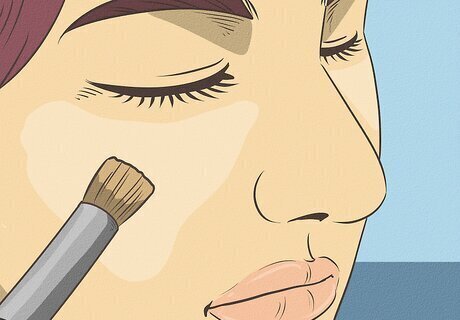
Apply concealer to red areas on your face. After a cry, you might notice redness and blotchiness in several areas of your face. To hide the fact that you were crying, quickly pat some concealer on these red areas to make them less noticeable.
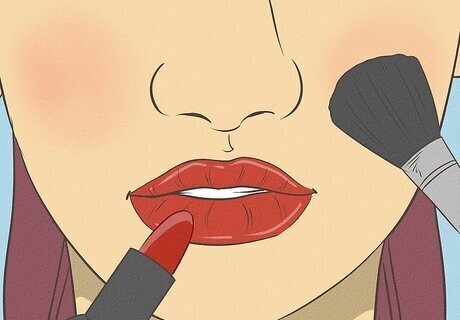
Put on some lipstick or blush. Add some color to your lips and cheeks with a bit of blush or lipstick. Accentuating these features draws attention away from red, puffy eyes, and it can also help you appear more refreshed.
How long do eyes stay puffy after crying?
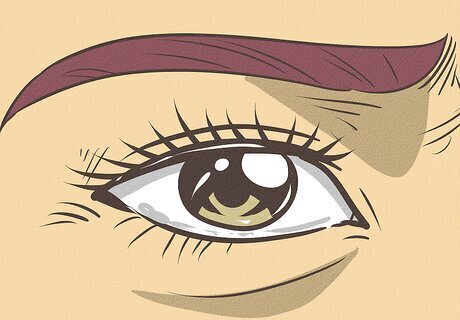
Eyes may stay puffy for a few minutes to a few hours after crying. It can be frustrating to look in the mirror and see that your eyes are super red and puffy after a crying session, but rest assured that the effect is temporary. Even without using any of the above methods, the puffiness should subside within a few hours at most.
Why do people cry?
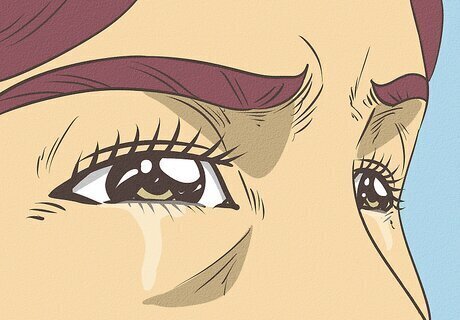
Tears are essential for maintaining the health of your eyes. It’s common knowledge that tears convey emotion, but they also protect your eye from the outside world and flush out harmful irritants. There are three different types of tears, and each has its own unique function: Basal tears: These tears are present in your eye at all times to lubricate them and protect your cornea from any dust or debris. Reflex tears: Your tear ducts form these tears when your eye gets exposed to an irritant like smoke, fumes, or foreign bodies. Their purpose is to flush these irritants out of your eyes. Emotional tears: These tears are formed when you feel a strong emotion, like sadness, fear, joy, or awe.
Preventing Puffy Eyes

Sleep with your head elevated. If you’ve cried right before bed, lie on your back and place an extra pillow underneath your head to keep it elevated while you sleep. This helps prevent fluid from settling around your eyes, which can cause puffiness and eye bags.
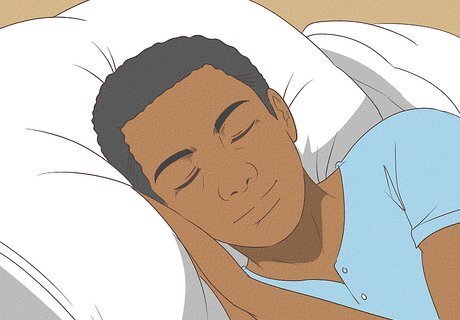
Get plenty of sleep. Even if your puffy eyes are caused by crying, other factors can determine their severity. A lack of sleep, for example, can cause puffy bags underneath your eyes on a regular basis, and they may be accentuated when you cry. To avoid this, make sure to get enough quality sleep each night. The right amount varies depending on your age, but most healthy adults need at least 7 hours per night.
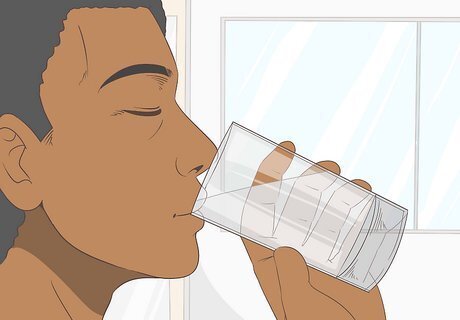
Make some changes to your diet. To prevent eye puffiness in the long-term, try to avoid eating too much salt, which can cause fluid retention. You may also want to consider cutting back on caffeine and alcohol, which can dehydrate you and have negative effects on your skin's appearance.
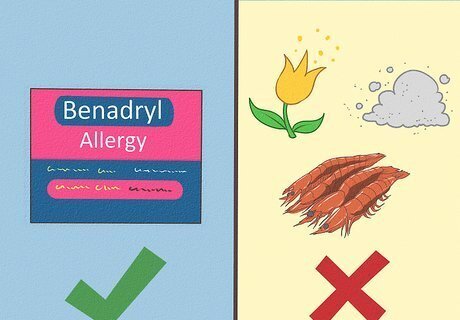
Treat any allergies you might have. Mild allergic reactions to pollen, dust, animals, or food can cause swollen eyes and exacerbate puffiness. Take allergy relief medication if you normally do, or visit a doctor for more advice on how to treat allergies.
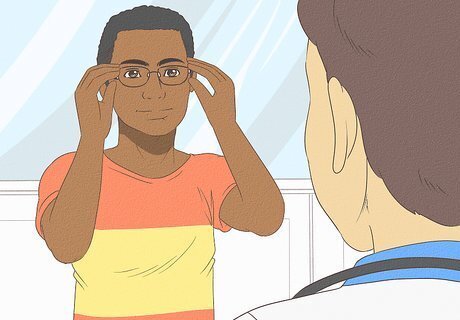
Visit an eye doctor. If you frequently get puffy or irritated eyes, there may be an underlying cause. An optometrist can check your vision and possibly prescribe glasses or contacts to reduce eye strain, and an ophthalmologist can examine your eyes for medical conditions.











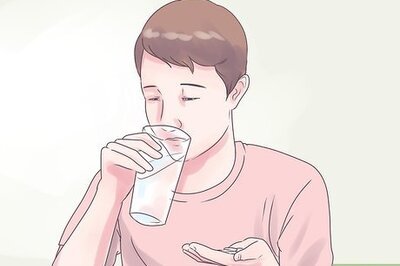



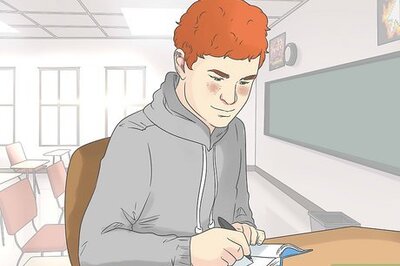
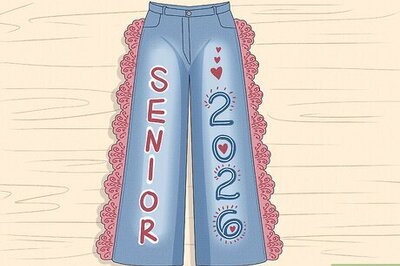


Comments
0 comment